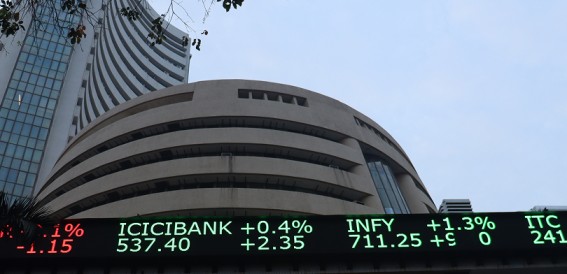Investing in the stock market is a popular way for individuals and institutions to grow their wealth. However, many investors are often confused by the various types of investors and their role in the market.
Two common types of investors in the Indian stock market are Foreign Institutional Investors (FIIs) and Domestic Institutional Investors (DIIs). While both categories may seem similar, significant differences can impact the market’s functioning.
Topics Covered :
- What are FIIs and DIIs?
- Types of FIIs and DIIs: Full Details on Various Types
- FII Vs DII
- A Few Other Aspects to Know About FII and DII
- Final Word
Understanding these differences is crucial for investors to make informed decisions and mitigate risks. This post will delve into the intricacies of FIIs and DIIs, their characteristics, and how they contribute to the Indian stock market.
What are FIIs and DIIs?
FIIs and DIIs are two types of investors that play a significant role in the Indian stock market. FIIs, also known as Foreign Institutional Investors, refer to investors outside India who invest in the Indian stock market.
On the other hand, DIIs, or Domestic Institutional Investors, are domestic investors who invest in the Indian stock market. Comparing these two types of investors is important because they have different investment strategies, risk profiles, and impacts on the market.
Understand FII vs DII impact, then take charge! Open a Demat Account and invest confidently.
Recommended Read: Bombay Stock Exchange
Understanding the difference between FIIs and DIIs is crucial for investors as it helps them analyse the market trends and make informed investment decisions. While FIIs are driven by global economic and political factors, DIIs are influenced by domestic factors such as GDP growth, inflation, and interest rates.
Moreover, FIIs are known to be more volatile. They can have a significant impact on the stock market. At the same time, DIIs are considered to be more stable and long-term investors.
By comparing FIIs and DIIs, investors can better understand the market dynamics and manage their risks accordingly.
Begin your investing journey today. Your Demat account is the first step.
Types of FIIs and DIIs: Full Details on Various Types
Types of FIIs (Foreign Institutional Investors)
-
Foreign Portfolio Investors (FPIs)
FPIs are a major subset of FIIs, comprising foreign entities like hedge funds, pension funds, and mutual funds that invest in the Indian stock market.
-
Foreign Institutional Investors (FIIs)
This category includes a broader range of foreign entities, such as investment banks and insurance companies.
-
Qualified Foreign Investors (QFIs)
QFIs are individual foreign investors who can directly invest in the Indian stock market. To participate, they must comply with specific regulations and requirements.
Types of DIIs (Domestic Institutional Investors)
-
Mutual Funds
Significantly contributing as DIIs, mutual funds pool funds from individual investors to invest in a diversified portfolio of securities, including stocks and bonds
-
Insurance Companies
Domestic insurance companies invest funds collected through insurance premiums in various financial instruments, aiding the growth of the stock market.
-
Banks and Financial Institutions
Domestic banks and financial institutions invest in the stock market, enhancing market liquidity.
FII Vs DII
The difference between FIIs and DIIs in the Indian stock market is a topic of great interest and importance for investors. A comprehensive and detailed comparison is necessary to better understand these institutional investors and their impact on the stock market.
This comparison can provide valuable insights into the differences in their origin, investment strategies, and overall influence on the stock market. A point-by-point comparison, accompanied by a table, can help visualise and analyse these differences effectively.
To begin with, FIIs and DIIs differ in their origin, as FIIs are foreign entities while DIIs are domestic entities. This difference in origin has a significant impact on their investment strategies.
FIIs tend to focus on short-term investments, as they are influenced by global factors such as economic conditions and political stability. On the other hand, DIIs prioritise long-term investments and are driven by domestic factors such as government policies and market trends
This difference in investment strategies can greatly affect the volatility and stability of the stock market. A detailed comparison of these factors can aid investors in understanding the behaviour and impact of FIIs and DIIs on the stock market.
These two types of investors play a significant role in shaping the Indian stock market, and their differences are important to consider. FIIs are foreign entities investing in the Indian stock market, while DIIs are domestic entities.
Another crucial aspect to remember when learning about FIIs and DIIs is their impact on the stock market. Due to their short-term investment approach, FIIs can bring market volatility, leading to stock price fluctuations.
| Aspect | FII | DII |
| Origin | Foreign entities | Indian entities |
| Investment Focus | Short-term investments | Long-term investments |
| Influences | Global economic conditions, political stability | Domestic policies, Indian market trends |
| Market Impact | Can cause volatility due to quick investments or withdrawals | Provide stability due to long-term investment focus |
A Few Other Aspects to Know About FII and DII
Origin: The Roots of Their Investments
FII (Foreign Institutional Investors)
- Definition: These are investors or institutions originating from countries outside India.
- Composition: It includes hedge funds, insurance companies, pension funds, investment banks, and mutual funds.
- Regulation: FIIs must register with SEBI ( Securities and Exchange Board of India ) to operate in India.
DII (Domestic Institutional Investors)
- Definition: DIIs are institutions or organisations that originate and operate within India.
- Composition: Predominantly consists of mutual funds, insurance companies, banks, and pension funds from India.
- Regulation: They are also under the purview of SEBI and follow specific guidelines tailored for domestic entities.
Investment Strategies
FII
- Global Perspective: FIIs often have a global investment outlook. Their decisions in the Indian market are influenced by global events, currency strengths, and international political scenarios.Recommended Read: What is Stock Chart Patterns
- Risk Management: Being foreign entities, FIIs may be risk-averse when investing in emerging markets like India. They’re quick to pull out during uncertain times.
DII
- Domestic Focus: DIIs have a more localised perspective. They base their decisions on India’s economic health, local industry performance, and government policies.
- Consistent Investment: DIIs often maintain consistent investment in the market, even during downturns, due to their long-term outlook and commitment to Indian growth.
Final Word
Understanding the difference between Foreign Institutional Investors (FIIs) and Domestic Institutional Investors (DIIs) in the stock market is important.
While both play a crucial role in the market, their strategies and impact can differ. FIIs are often driven by global economic trends. They may have a larger influence on market movements, while DIIs tend to have a more long-term investment approach. Investors need to be aware of these differences and consider the actions of FIIs and DIIs when making investment decisions.

















